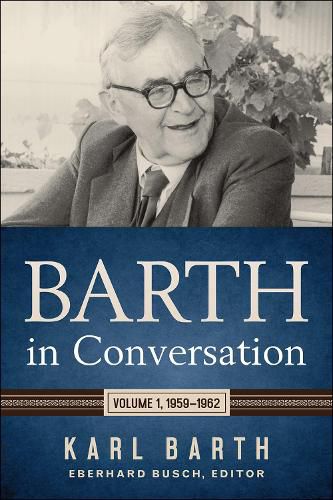Readings Newsletter
Become a Readings Member to make your shopping experience even easier.
Sign in or sign up for free!
You’re not far away from qualifying for FREE standard shipping within Australia
You’ve qualified for FREE standard shipping within Australia
The cart is loading…






Karl Barth is widely regarded as the most important theologian of the twentieth century, and his observations about the church and its place in a modern world continue to engage religious scholars nearly fifty years after his death. This English translation of the Swiss-published Conversations is a three-volume collection featuring correspondence, articles, interviews, and other short-form writings by Barth from 1959-1962. Among them are dialogues with representatives of the Evangelical Community Movement (1959); conversations with prison chaplains and a question-and-answer session with the Conference of the World Student Christian Federation (1960); discussions with Methodist preachers, Zurich pastors, and Catholic students of theology (1961); press conferences in New York and Chicago (1962); and an interview at the United Nations (1962). Within these pages, scholars and students will find a comprehensive view into Barth’s life and thinking about theology and its role in society today.
$9.00 standard shipping within Australia
FREE standard shipping within Australia for orders over $100.00
Express & International shipping calculated at checkout
Karl Barth is widely regarded as the most important theologian of the twentieth century, and his observations about the church and its place in a modern world continue to engage religious scholars nearly fifty years after his death. This English translation of the Swiss-published Conversations is a three-volume collection featuring correspondence, articles, interviews, and other short-form writings by Barth from 1959-1962. Among them are dialogues with representatives of the Evangelical Community Movement (1959); conversations with prison chaplains and a question-and-answer session with the Conference of the World Student Christian Federation (1960); discussions with Methodist preachers, Zurich pastors, and Catholic students of theology (1961); press conferences in New York and Chicago (1962); and an interview at the United Nations (1962). Within these pages, scholars and students will find a comprehensive view into Barth’s life and thinking about theology and its role in society today.